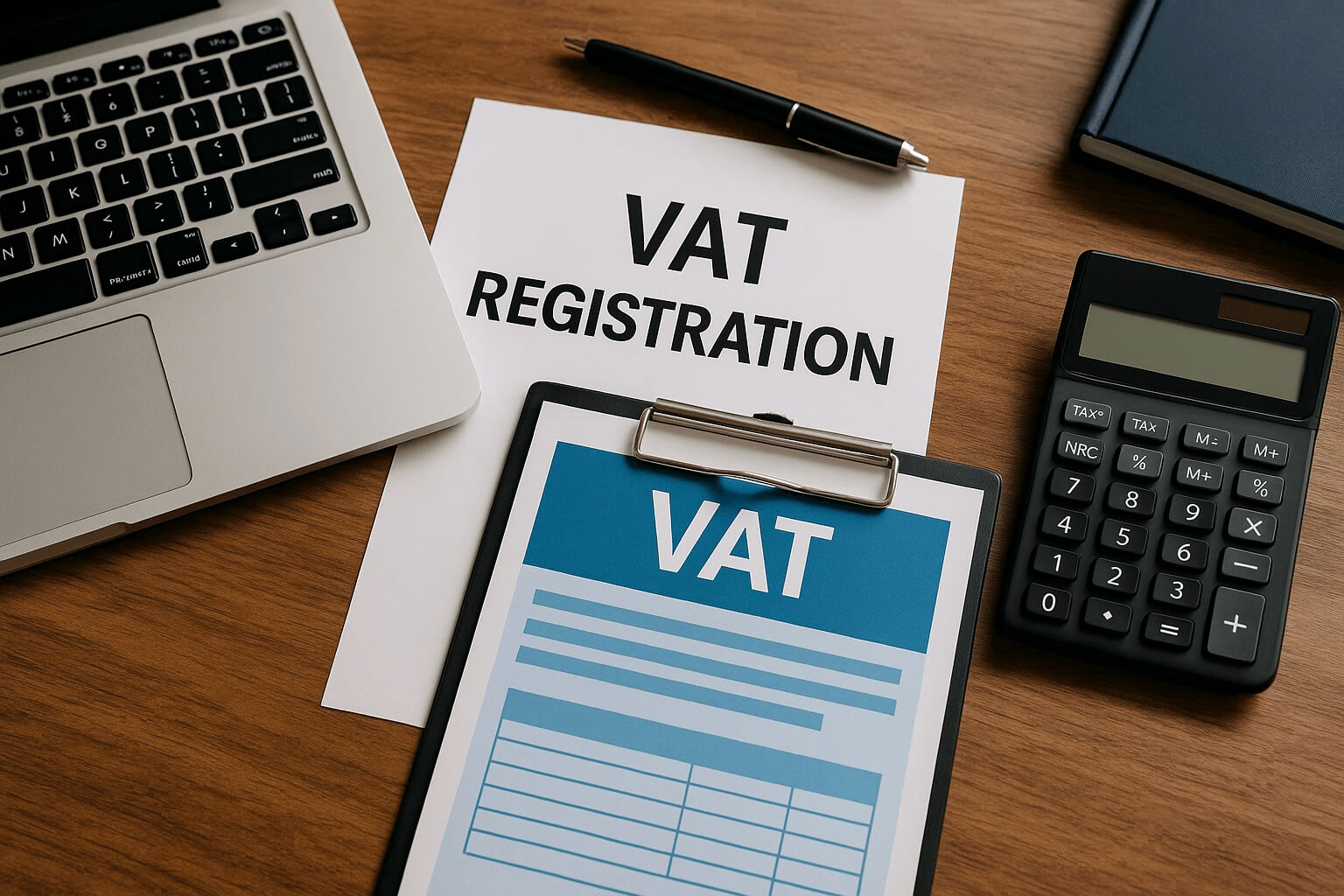In 2025, VAT registration in the UAE becomes not only a legal requirement for many businesses, but also a strategic necessity. Whether you’re running a local retail store, a consulting firm, or a digital agency, understanding how VAT applies to your business is critical. Moreover, the consequences of non-compliance—ranging from financial penalties to damaged business reputation—make it essential to stay informed.
This article walks you through everything you need to know: who must register for VAT, how the process works, what documents are required, and how to optimize your post-registration obligations. With proper planning and accurate bookkeeping, VAT compliance becomes manageable—and beneficial—for your business.
When Are You Required to Register for VAT?
Under UAE tax law, businesses must register for VAT if their annual taxable turnover exceeds AED 375,000. Importantly, this threshold includes not just sales of goods and services, but also revenue from rentals, commissions, and other business-related sources. Consequently, many small and medium-sized enterprises (SMEs), freelancers, and online sellers may unexpectedly find themselves obligated to register.
There are two categories to consider:
- Mandatory VAT registration: if annual turnover exceeds AED 375,000
- Voluntary registration: if turnover falls between AED 187,500 and AED 375,000
Failing to register on time can result in fines starting from AED 10,000. Therefore, early assessment of your turnover and income sources is crucial.
How Does the VAT Registration Process Work?
The registration process begins by creating an account on the official website of the Federal Tax Authority (FTA) at tax.gov.ae. Once logged in, businesses can access the VAT registration form, which must be completed accurately. The form asks for key details such as:
- Company name and legal structure
- Trade license information
- Contact details and business address
- Information about owners and directors
- Estimated revenues and business activities
After submitting the form, the FTA typically processes the application within 20 working days. If all information is correct and complete, you will receive a Tax Registration Number (TRN)—your company’s unique identifier for VAT purposes.
What Documents Will You Need?
Preparing the right documentation in advance will help speed up the application process and reduce the risk of rejection. Generally, the following documents are required:
- A valid business license
- Passport copy and Emirates ID of the owner or manager
- Company formation documents (MOA or AOA)
- Bank account details (IBAN and bank letter)
- Proof of business address (e.g., tenancy contract or utility bill)
- Financial records supporting your turnover (e.g., sales invoices, contracts)
In some cases, the FTA may request additional proof of operational activity—such as email communications with clients or signed service agreements. Therefore, it’s best to keep your documents well-organized and easily accessible.
What Happens After You Register?
Receiving your TRN is only the beginning. Once registered, your business is legally obligated to:
- Charge 5% VAT on taxable supplies
- File VAT returns on a quarterly basis
- Maintain financial records for at least five years
- Issue VAT-compliant invoices
- Keep track of both input and output VAT
VAT returns must be submitted online through the FTA portal. Missing deadlines or submitting inaccurate returns can lead to significant fines. For example, a late return may cost you AED 10,000, with additional charges of 2% for the first delay and 4% if the delay extends beyond seven days. As a result, timely reporting is essential.
Can VAT Be Optimized?
Yes. One of the advantages of VAT registration in the UAE is the ability to claim input VAT on eligible business expenses. However, these claims are only valid if they are supported by correct documentation and declared within the allowed reporting period.
Moreover, VAT compliance adds credibility to your company. It signals that your business meets regulatory standards and makes it easier to work with major partners, banks, and government agencies.
To optimize your VAT position:
- Keep all VAT invoices and receipts organized
- Work with a certified accountant or tax advisor
- Reconcile VAT data regularly to catch discrepancies early
- Verify the VAT status (TRN) of suppliers and clients
In case of reporting errors, you can submit a voluntary disclosure to correct them. But this must be done before the end of the relevant tax period, or penalties may apply.
VAT registration in the UAE is more than just a bureaucratic checkbox—it’s a foundational step in building a legitimate and trusted business. When done correctly, it unlocks benefits such as VAT refunds, access to government contracts, and enhanced financial transparency.
By preparing the right documents, understanding the legal framework, and keeping accurate records, your business can turn VAT from a challenge into a tool for sustainable growth.




